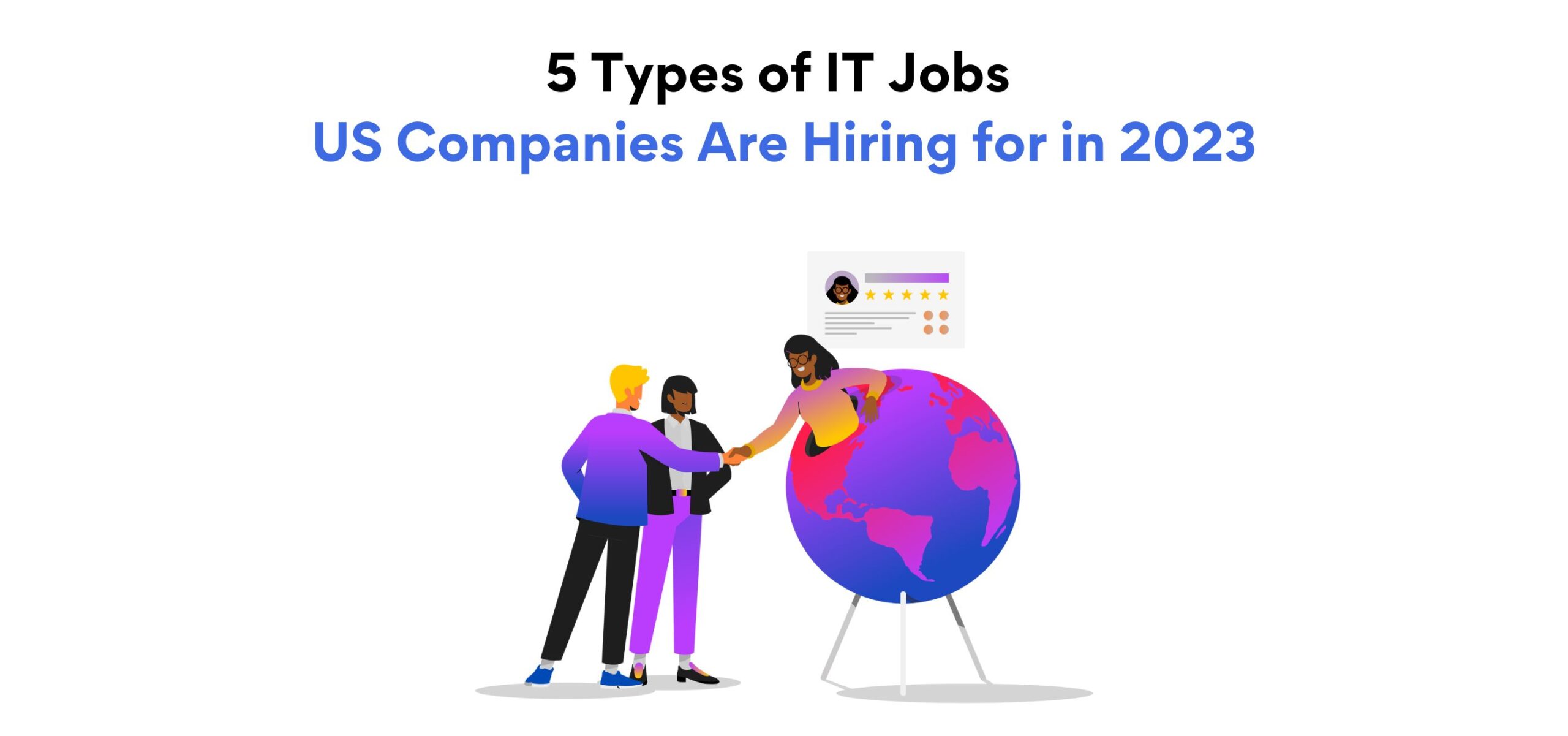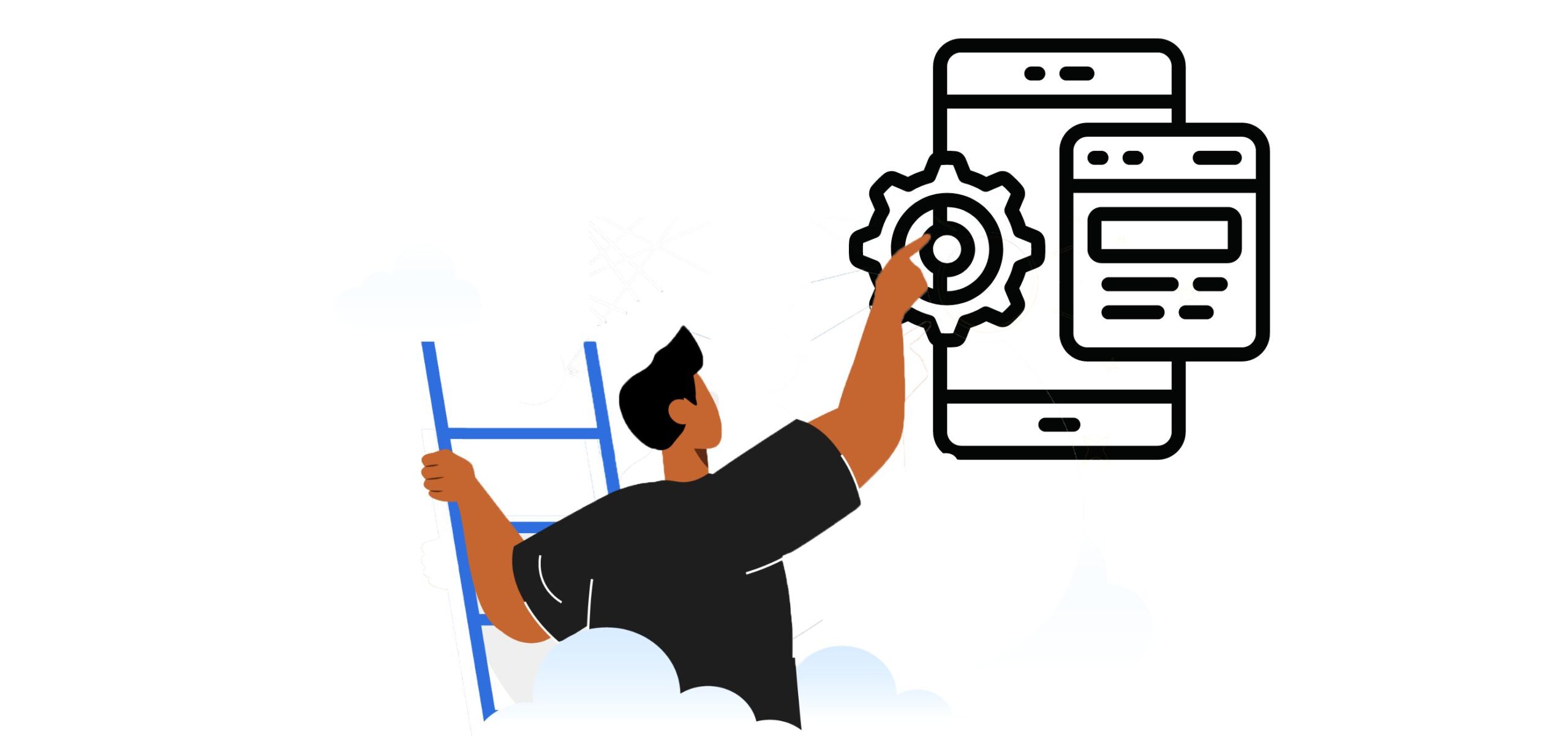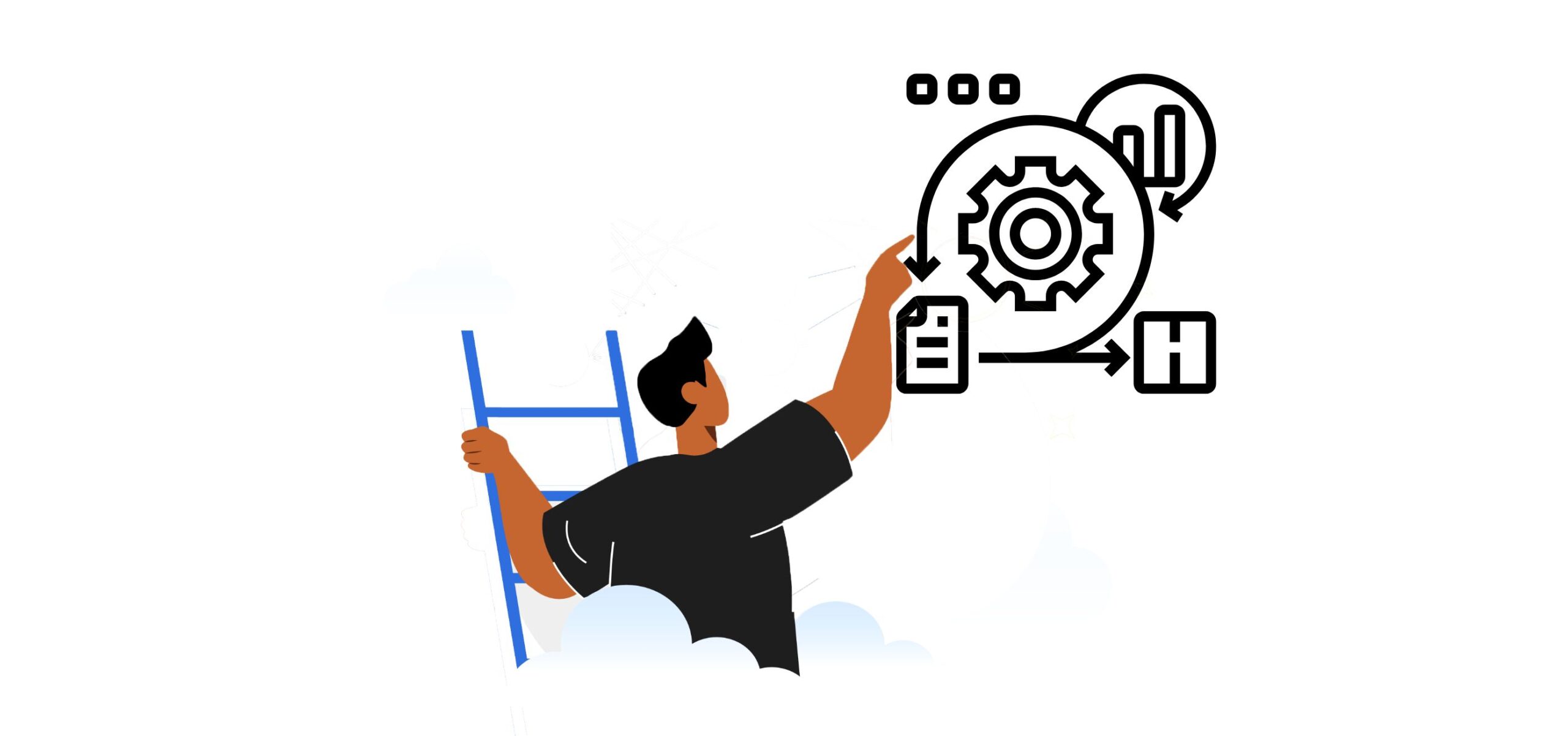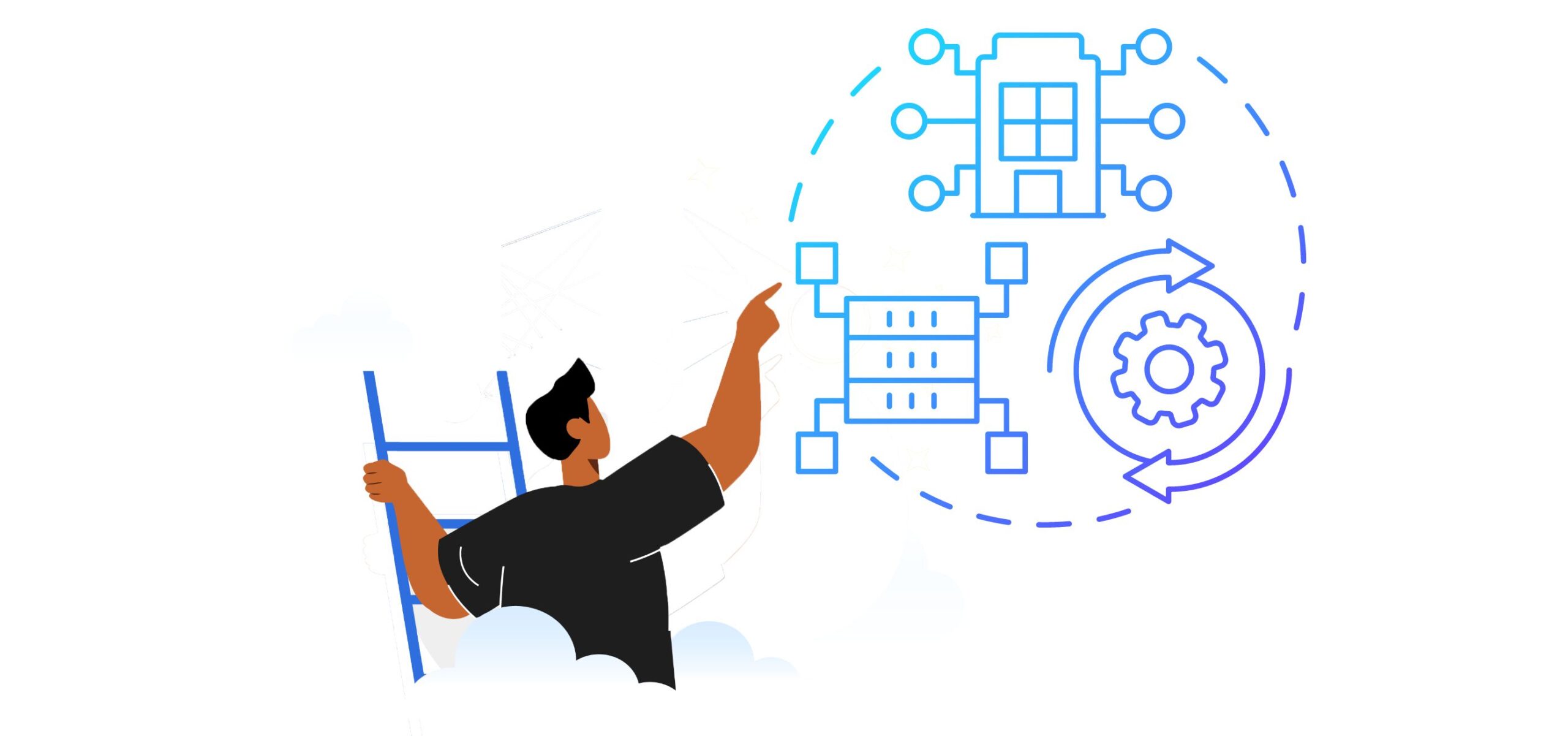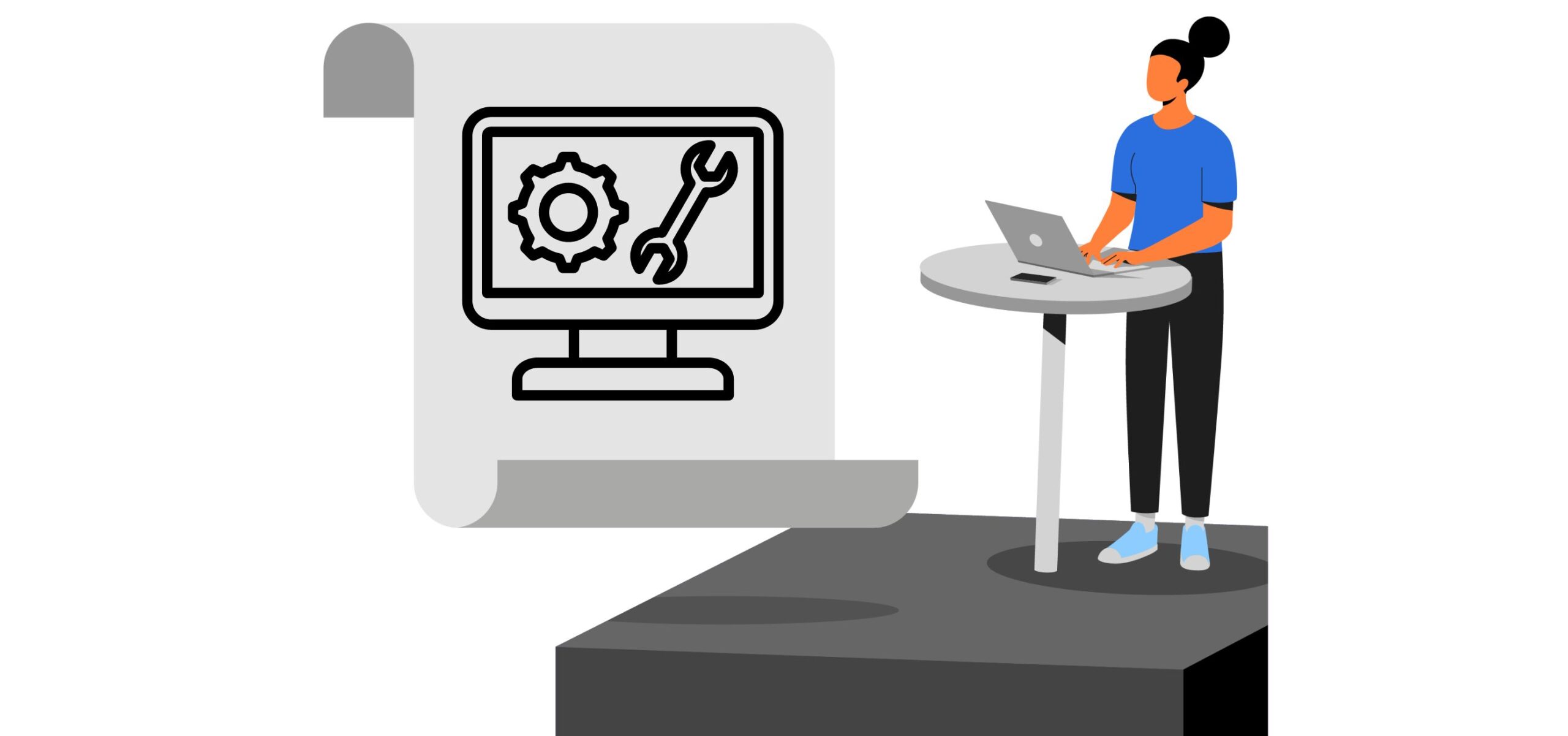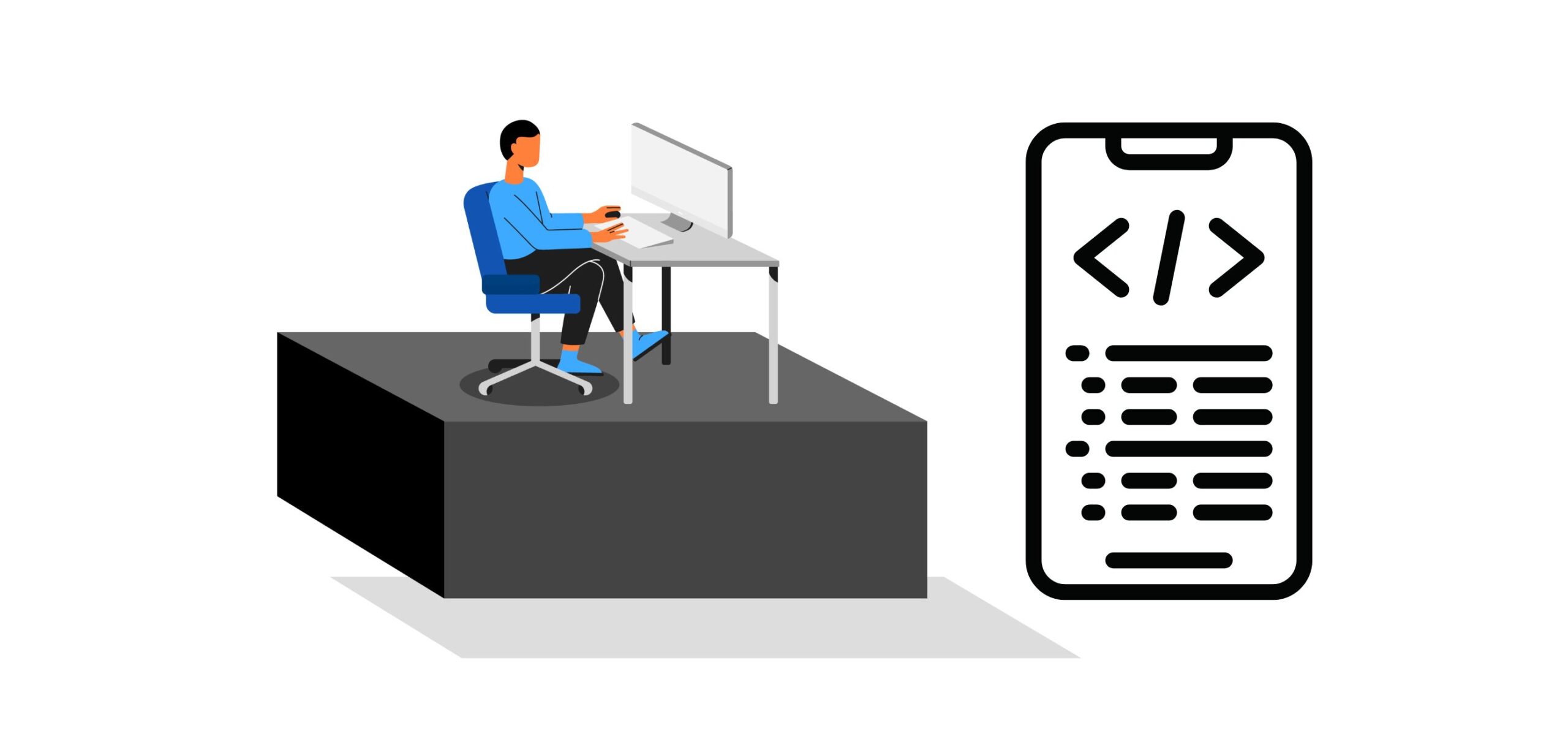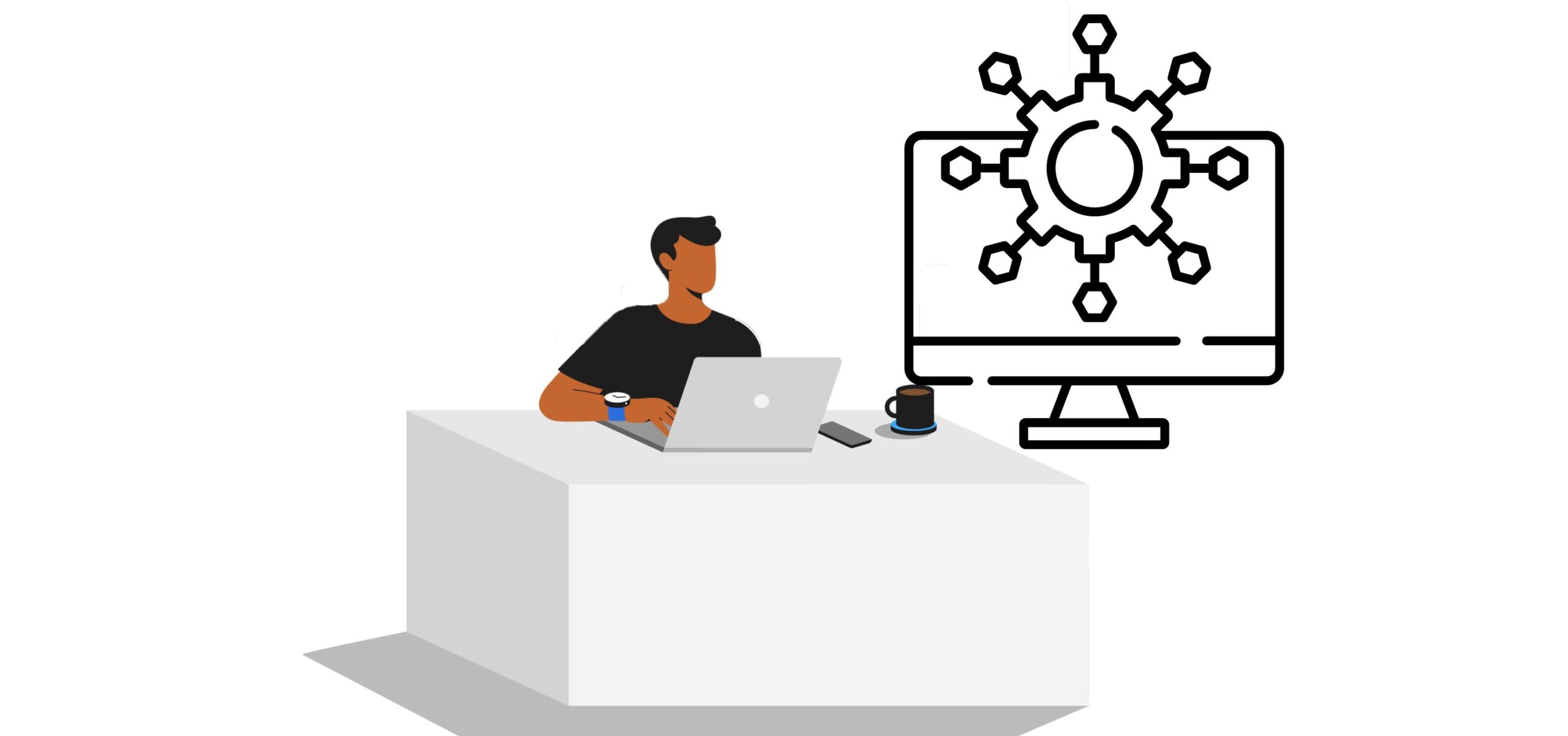These 5 Types of IT Jobs Are in High Demand in 2023!
If technology has always fascinated you, the IT industry may be a great place to start or grow your career. Whether you’re just beginning to explore the field or looking to switch roles within the industry, it’s important to understand the different types of IT jobs available and the ones in high demand in 2023. Keep reading to learn more.
Types of IT jobs
The information technology industry has various roles and areas of expertise. These roles and responsibilities can be subcategorized into the following categories:
- Cybersecurity: This field is dedicated to keeping organizational and user data secure and implementing preventative measures to minimize harm in the event of a security breach.
Related post: Top 10 Cyber Security Jobs in 2023 - IT infrastructure: This area focuses on the design, planning, and implementation of IT-related hardware on an organization-wide level.
- IT support: This refers to the professionals who assist end users and other IT support specialists with day-to-day technical issues.
- Software development: Software development is a programming-focused branch of IT that involves creating or modifying software applications to meet the needs of users.
- Data management: Professionals in this field focus on designing structured database systems, creating data-loss contingency plans, and analyzing gathered data.
These are the major categories of IT jobs and roles. But, one should know that sometimes, there can be an overlap between these categories. For eg, someone who has an in-depth knowledge of cybersecurity can help in creating an IT infrastructure. Now, let’s take a look at the 5 trending IT roles in 2023.
5 trending information technology jobs in 2023
-
Software developers
Software developers are responsible for designing, creating, testing, and maintaining software applications and systems. Software developer roles are one of the top in-demand IT roles in 2023. They use a variety of programming languages and tools to write clean code, troubleshoot issues, and optimize software performance.
Duties of software developers may include:
- Analyzing user requirements and determining the feasibility of a software solution
- Collaborating with other developers, designers, and stakeholders to ensure software meets specifications
- Debugging and troubleshooting software issues
- Maintaining and updating existing software systems
- Documenting software design and development process
- Designing, developing, and testing software code
- Continuously learning new programming languages and tools to stay current with industry trends and developments.
Software developers often specialize in a particular area of development, such as web, mobile, or game development. They may also specialize in a specific programming language or platform, such as Java, C#, or Python.
-
Computer network engineers
Computer network architects, also known as network engineers or network architects, are responsible for designing, implementing, and maintaining the computer networks of an organization. They ensure that the network infrastructure is reliable, secure, and able to meet the needs of the organization.
Duties of computer network architects or network engineers may include:
- Analyzing the organization’s current and future network needs
- Designing and planning the network infrastructure, including hardware and software components
- Configuring and installing network hardware and software
- Managing and maintaining network security, including firewalls and intrusion detection systems
- Troubleshooting network issues and resolving problems
- Managing network performance and optimizing network resources
- Knowing about the industry trends and having knowledge of the latest technologies
- Collaborating with other IT professionals and vendors to ensure the network meets the needs of the organization
Computer network architects are often specialized in a specific type of network, such as local area networks (LANs), wide area networks (WANs), or cloud networks. They also may be specialized in a specific technology, such as Cisco, or Juniper, or networking protocols such as TCP/IP, BGP, or OSPF.
-
Computer support specialists
Computer support specialists, also known as technical support specialists, help individuals and organizations with technical problems related to computer systems, software, and hardware. They provide technical assistance, troubleshoot and resolve issues, and answer questions related to computer systems and applications.
Computer support specialists are responsible for:
- Providing technical assistance to customers or clients via phone, email, or in-person
- Troubleshooting and diagnosing technical issues related to computer systems and software
- Providing step-by-step instructions for resolving technical issues
- Maintaining and updating records of customer interactions and support requests
- Escalating complex technical issues to higher-level support staff
Collaborating with other IT professionals to resolve more complex technical issues
Computer support specialists may be specialized in a specific type of technology or industry, such as desktop support, help desk, or technical support for a specific software or hardware vendor.
-
IT product managers
IT product managers are responsible for the development and success of technology products and services within an organization. They act as the link between the technical and business aspects of product development and play a key role in the strategic planning, development, and marketing of products.
Related post: 6 Tips to Scale Design Team: A Guide for Product Managers
IT product managers perform the following duties:
- Identifying market opportunities and defining product vision and strategy
- Gathering and prioritizing product and customer requirements
- Collaborating with cross-functional teams, such as engineering, design, and marketing, to develop and launch new products
- Defining and communicating product roadmaps and plans to stakeholders
- Analyzing market trends and competitor activity to inform product development
- Manage the whole product development life cycle, from design to the end-of-life
- Collaborating with sales, marketing, and customer support teams to ensure successful product
- positioning and go-to-market strategies
- Analyzing product performance and making data-driven decisions to improve product performance
IT product managers often have a background in technology, business, or a related field, and have a good understanding of the industry and market trends. They have to work closely with different teams and stakeholders, so they need to have strong communication and collaboration skills.
- Identifying market opportunities and defining product vision and strategy
-
Web developers
IT web developers are responsible for designing, creating, and maintaining websites and web applications. They use a variety of programming languages and technologies to build and implement web solutions that meet the needs of users and organizations.
Their duties may include:
- Analyzing user requirements and determining the feasibility of a web solution
- Designing, developing, and testing web pages and applications using languages such as HTML, CSS, JavaScript, and others
- Collaborating with other developers, designers, and stakeholders to ensure web solutions meet specifications
- Debugging and troubleshooting web development issues
- Maintaining and updating existing web solutions
- Optimization of web pages for maximum speed output and scalability
- Ensuring cross-browser compatibility and mobile responsiveness
- Continuously learning new web development trends and technologies to stay current with industry developments
Web developers may specialize in a particular area of development, such as front-end, back-end, or full-stack development. They also may specialize in a specific programming language or framework, such as React, Angular, or Ruby on Rails.
So, these are the top trending IT jobs and roles in 2023. If you want to apply for such IT roles, ensure that you create a strong portfolio, practice tech resume writing and build a great resume, and learn the skills required for the roles that you’re applying for.
Do your research and learn about the company you’re interested in.
Have you come across a job opening and want to send an email to the employer? Click here to know how to write a job application email.
Did you know?
IT industry is facing a tech talent shortage across the globe. Top US companies are looking for talented IT professionals to work for them remotely. In return, they are offering high compensation, work-life balance, and flexible timings. But how? Through Turing. Once you become a Turing developer, you never have to look for another job. Visit the Apply for Jobs page and become a Turing developer today.
Join a network of the world's best developers and get long-term remote software jobs with better compensation and career growth.
